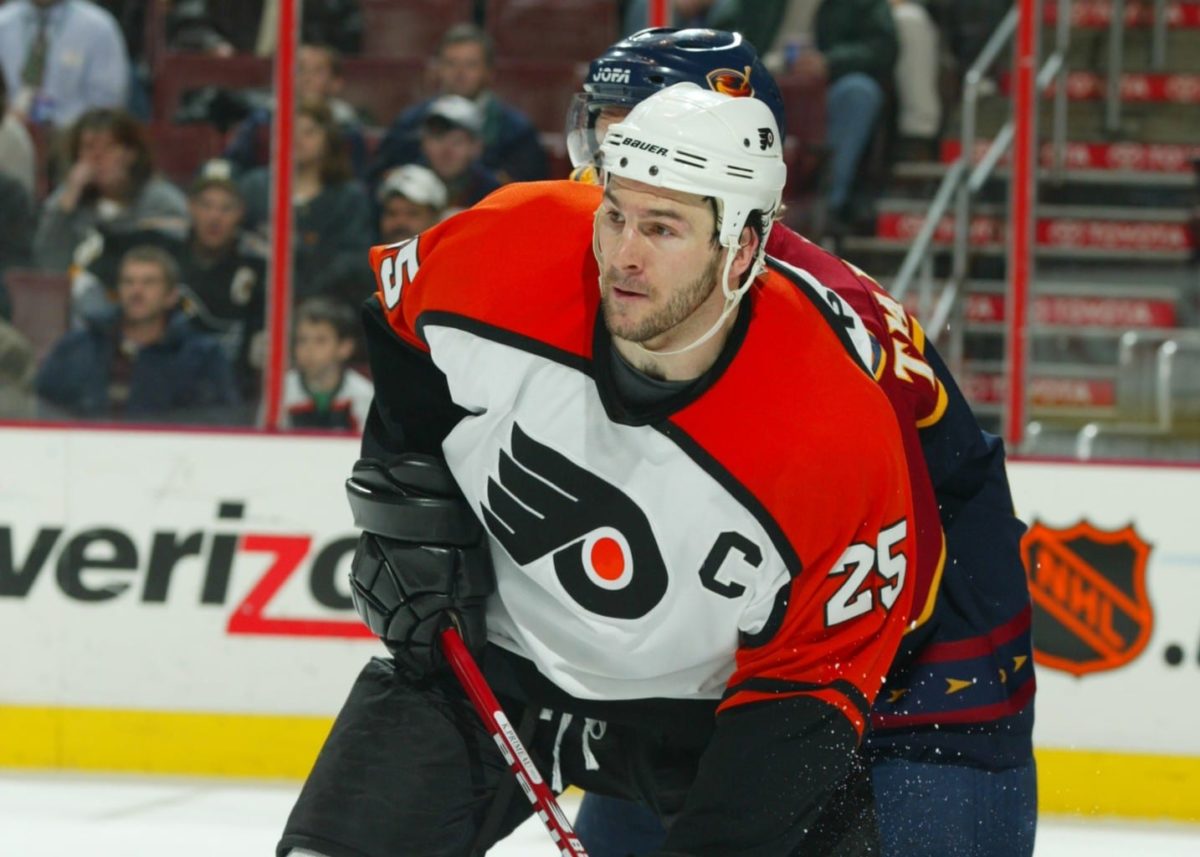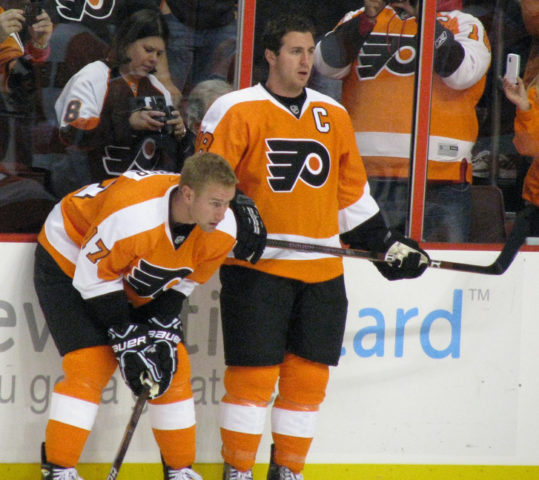The Philadelphia Flyers sent 22-year-old winger Justin Williams to the Carolina Hurricanes in exchange for defenseman Danny Markov in January 2004. Williams was a solid offensive contributor who was still developing at the time of the trade after breaking into the NHL just one day after his 19th birthday. However, trouble transitioning into a new system during his third and fourth NHL seasons under recently hired Flyers coach Ken Hitchcock spurred the Flyers to move on from him.
Williams proved to be “the one that got away” from the Flyers. He went on to bring immeasurable value to three Stanley Cup champions over a span of 16 years in the NHL outside of Philadelphia. He earned the nickname “Mr. Game 7” because of his knack for clutch performances in eight career victories and an NHL record 15 points in decisive Game 7s.
Meanwhile, the Flyers have suffered 11 playoff series losses since the trade. They are becoming increasingly likely to miss the playoffs for the fifth time in nine seasons in 2020-21, and their Stanley Cup drought has reached an astonishing 45 years.
The Flyers Were Stanley Cup Contenders
It seemed logical for Philadelphia to trade Williams, a young winger struggling to find his bearings, for a defenseman who could make an immediate impact. The Flyers were poised to contend in the short-term with veteran stars Keith Primeau, Jeremy Roenick, John LeClair, and Mark Recchi. In addition to acquiring Markov, the Flyers also traded for center Alexei Zhamnov and defenseman Vladimir Malakhov during the 2003-04 season. All three acquisitions successfully patched up roster holes and helped Philadelphia to a berth in the Eastern Conference Final. The moves even seemed like a step of progression for an organization that had traditionally shied away from Russian talent in archaic fashion under long-time owner Ed Snider.

The Flyers lost the Eastern Conference Final in Game 7, ironically, to the eventual Stanley Cup champion Tampa Bay Lightning that season. The following NHL season was canceled due to the lockout, and none of the three Russians acquired in 2003-04 ever played for the Flyers again.
The Glowing Reputation of Justin Williams
Justin Williams was never a superstar scorer. He eclipsed 60 points only twice in his 20-year NHL career. However, his greater value came from the leadership and intangible traits that earned him one of the best reputations among teammates and coaches of any player in his era.
His time with Carolina is an exemplary case of Williams’s effect on the organizations he played for. The peak of his offensive game came in the 2005-06 season when he scored 31 goals and 45 assists for the Hurricanes during their only Stanley Cup season since the move to Carolina in 1997. He was integral in yet another organizational turnaround when he led the Hurricanes to a spirited surge to the Eastern Conference Final in the 2019 Playoffs during his second stint in the organization.
The timeliness of Williams’ best performances proved to be a hallmark of his career. He was a secondary scoring option for the Los Angeles Kings behind budding stars like Anze Kopitar, Dustin Brown, and Drew Doughty on their Stanley Cup teams in 2011-12 and 2013-14. However, 25 points in 26 games earned him the Conn Smythe Trophy following the 2014 Playoffs and solidified his role as a core contributor to the best era in Kings history.
Flyers Organizational Frustration
The Williams trade exemplified a Flyers’ organizational trend of trading young players amidst growing pains during their development. Many of these young players have gone on to success with other organizations following the changes in scenery.
Seemingly every season, the Flyers watch a player formerly in their organization raise the Stanley Cup. They were forced to live with the irony when Patrick Sharp posted six points in six games against them en route to a Stanley Cup with the Chicago Blackhawks in 2010. It was the only Stanley Cup Final the Flyers have reached since they traded Sharp in 2005. They also dealt former franchise centerpieces Mike Richards and Jeff Carter to separate teams during the 2011 offseason. They watched them reunite as members of the Kings for two Stanley Cups, alongside Williams, in the ensuing three seasons.

The frustration surrounding the Flyers’ notorious revolving door of goaltenders was exacerbated when former netminder Sergei Bobrovsky went on to win two Vezina Trophies after being dealt by the Flyers to the Columbus Blue Jackets in 2012 in exchange for three draft picks.
Former Flyers general manager Ron Hextall aimed to reverse the organizational trend during his tenure from 2014-2018. He assembled a core of young, talented players currently on the Flyers roster, most notably Carter Hart, Ivan Provorov, and Travis Konecny. Despite varying degrees of disappointment from these young players during the 2020-21 season, the Flyers hope is that holding onto young and promising players nets them the same types of accolades as an organization that Justin Williams earned as an individual during his NHL career.